The Symposium on Smart and Service: Libraries and Modern Civilization was held at Wuhan University from July 24th to 25th.
VIPs attended the symposium were as followings:
Longqiang Chu, CPC Deputy Secretary of Wuhan University,
Xiaojian Ni, Professor, former vice chairman of Library Society of China, former Director of the Capital Library of China, and editorial board member of Journal of Library Science in China (in Chinese),
Chuanfu Chen, vice chairman of Library Society of China, Convenor of the Information Resources Management Discipline Review Group of Academic Degrees Committee of the State Council, Senior Professor of Humanities and Social Sciences at Wuhan University.
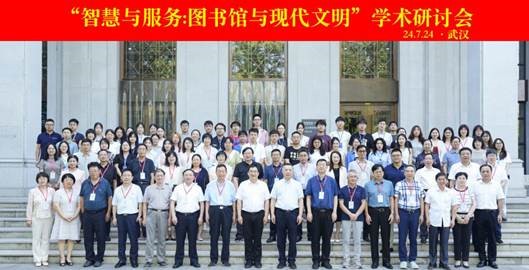
In his speech, Longqiang Chu extended a warm welcome to all the experts and scholars at presence. He pointed out that Smart and Service was the motto of Wuchang Boone Library School, the predecessor of Library discipline of Wuhan University, and it is also a fine tradition. Under the guidance, encouragement and inspiration of the spirit of Smart and Service, generations of Wuhan University librarians have made remarkable achievements in industry and academic communities over the past one hundred years. Focusing on the theme of Smart and Service, and responding to the strategic needs of national cultural development, this symposium explores the high-quality development path of librarianship in the new era. It is expected that experts and scholars would conduct in-depth exchanges and discussions on core issues such as basic theory of library science, construction of information resources and development of grass-roots libraries, so as to contribute more suggestions and strength to the high-quality development of librarianship in China.
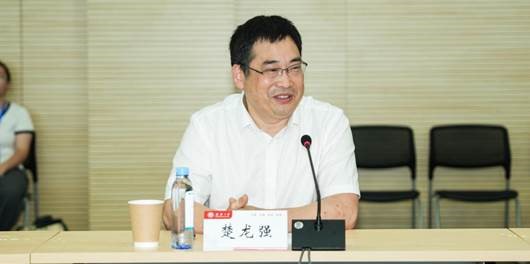
Xiaojiang Ni pointed out that China's library science education has gone through a hundred years, and the new era has given new connotations to Smart and Service. The discussion on Smart and Service is not only the sticks to the traditional discipline and makes innovations of library science, but also seek the cause development in the future. Under the call of the times to build the modern civilization of the Chinese nation, libraries should contribute to the construction of modern civilization. We should give full play to the wisdom of librarians, build up library science in China, tell the story of China library, and better serve the public and society.
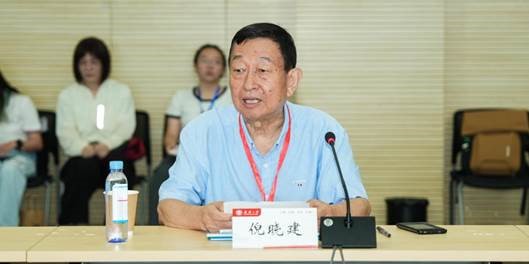
Chuanfu Chen pointed out that in the new era, China's library cause has made unprecedented development and historic achievements, but it also faces many challenges. As an important cultural infrastructure and social institution, library is an important support of material civilization and spiritual civilization, and plays an irreplaceable role in national economic and social development. Facing the future, Chinese librarians will stick to their original intentions, seize the opportunity of digital innovation, stick to the traditional discipline and makes innovations, reform and innovation, and make new contributions in the great process of further comprehensively deepening reform and promoting Chinese modernization.
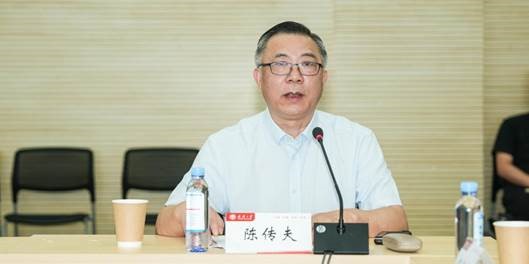
Wei Lu, Professor, Dean of the School of Information Management, Wuhan University, presided over the opening ceremony.
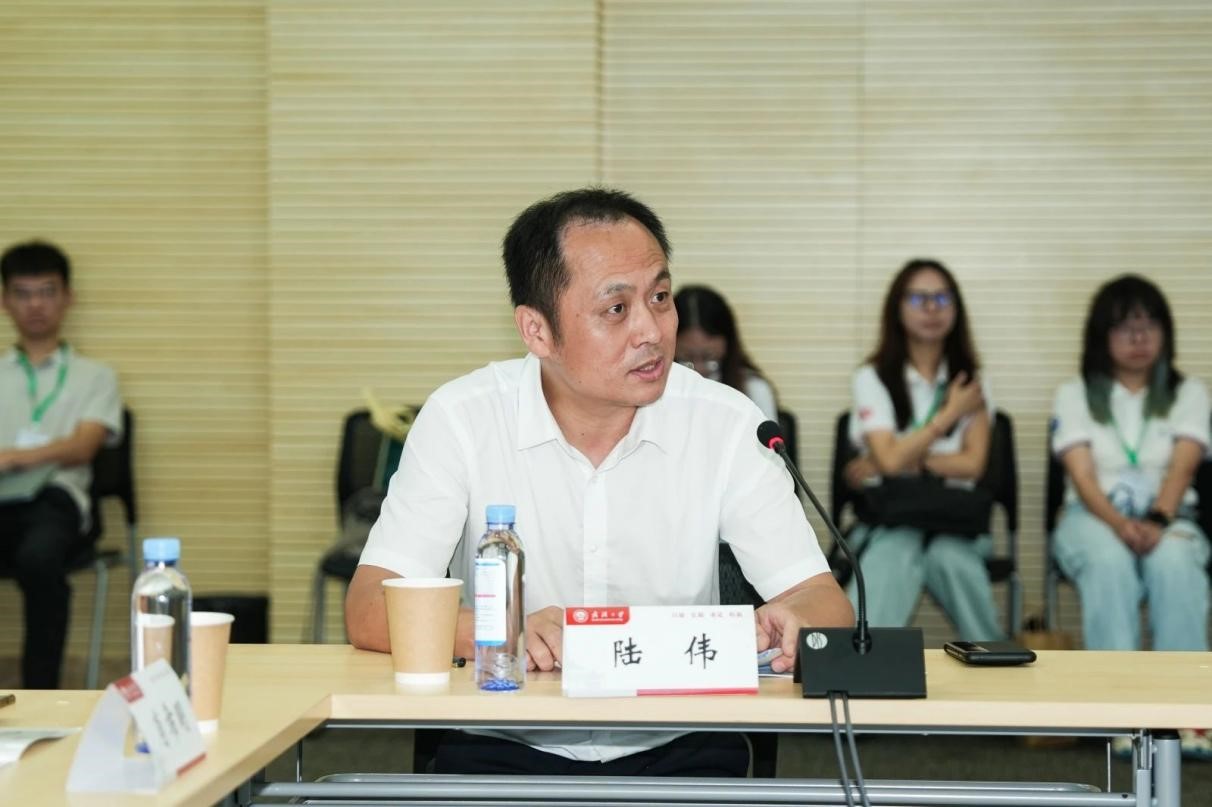
The symposium was organized around three topics, which are Building Library Science in China, Library and Preservation of Modern Civilization, Library and the Development of Grass-roots Culture.
Ping Ke, Professor at the Department of Information Resources Management of Nankai University, pointed out that “Chinese library science” should include Chinese context and characteristics. It is necessary to innovate factor theory and cultural theory to guide the development of library cause, and adhere to people-centered and information-resources-centered principles.
Chuanfu Chen believed that the construction of Chinese Library Science should be rooted in Chinese modernization, cultivate China's excellent culture, adhere to the people's dominant position, and form China characteristics and China style.
Leye Yao, Vice President of Sichuan University and Professor at the School of Public Administration, proposed that the construction of China's independent library knowledge system should be based on the current historical position of library science in China, with autonomy, locality, systematicness and scientificity.
He Li, Professor at the School of Business and Management of Jilin University, pointed out that digital technology has had a great impact on information organization and resource utilization, and the library science system needs to be adjusted and improved.
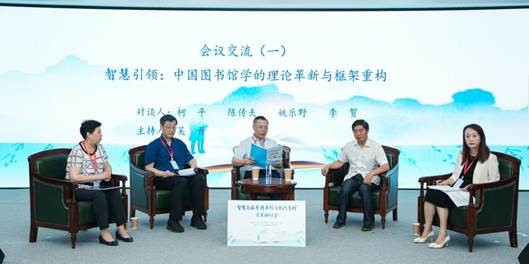
Bingsi Fan, Professor at the Department of Information Management of East China Normal University, took fair and barrier-free services as an example to show that technology and humanities are integrated and developed.
Jianming Zheng, Professor at the School of Information Management of Nanjing University, pointed out that the foundation of library literature arrangement has not changed all the time. What has changed is that libraries should adapt to the development of society and make technology the "wing" of libraries.
Jiaoteng Gong, Director of Xiangtan University Library, believed that humanity and technology are parallel concepts, but the humanistic spirit is often "despised" by technical rationality. The current library science is "methodology in spring", but it should not be "theory in winter".
Jiuzhen Zhang, Director of the Information Management Department of Peking University, combined with the image of libraries in film and television dramas, explained the far-reaching influence of libraries on people and advocated building more community libraries.
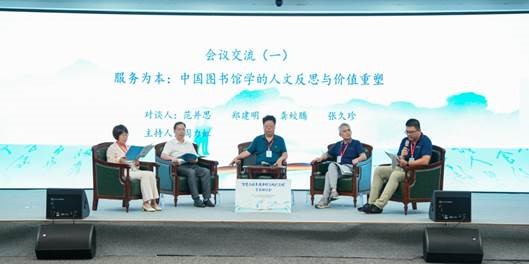
Hanchao Yin, Deputy Director of the Overseas China Research and Information Center of the National Library of China, answered the questions of "what to build, for whom and how to build" in resource construction in combination with work practice.
Jiewang Chu, Director of Anhui University Library and Professor at the School of Management, put forward some suggestions on the construction and maintenance of cooperative alliance and the long-term preservation mechanism of digital resources.
Lixin Xia, Professor and CPC Secretary of Central China Normal University, believed that libraries should promote the openness and integration of resources from the aspects of multiple collaborative strategies, unified metadata system, application of artificial intelligence technology and collection resource ecosystem.
Ximing Xiao, Professor at the School of Information Management of Wuhan University, analyzed the issues of national information security, homogenization and long-term preservation of digital resources in academic information resources.
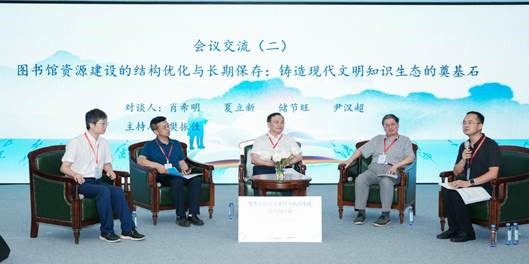
Jiyuan Ye, Professor at the School of Information Management of Nanjing University, combined with the latest research results, put forward his own views on the definition of information resources and the guarantee system of literature information resources under the change of carriers.
Jingli Chu, Professor, Director of the Department of Library, Information and Archives Management, University of Chinese Academy of Sciences, proposed that the development of library cause should adhere to the principle of "demand-oriented, resource-based, technology-oriented, service-oriented, librarian-oriented, management-oriented, culture-oriented, innovation-oriented, ability-oriented and value-oriented".
Guoquan Zang, Professor at the School of Information Management of Zhengzhou University, put forward the challenges and countermeasures in the aspects of resource preservation options, preservation motivation, preservation responsibility and data privacy.
Ruhua Huang, Deputy Director of Wuhan University Library and Professor at the School of Information Management of Wuhan University, discussed the prospect of the transformation of digital intelligence of resource organization, and proposed that the library should provide high-quality and forward-looking information resources for the society.
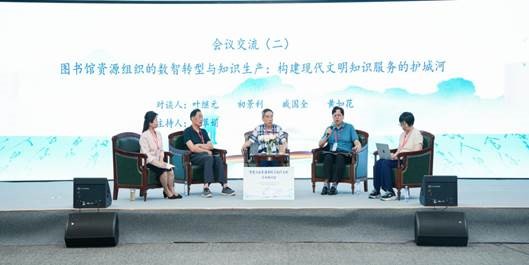
Guoxin Li, Professor at the Department of Information Management of Peking University, analyzed the achievements, problems and solutions of grass-roots libraries in China, and proposed to do a good job in "two mechanisms and one reform" (high-quality cultural resources directly reach the grass-roots mechanism, social forces participate in the public cultural service mechanism, and the separation of ownership and use rights of public cultural facilities).
Yunhui Lu, former director of Guizhou Minzu Uuniversity Library, vividly described the cultural life of rural residents in Guizhou from three aspects: cultural life cognition, public cultural service and rural social history and culture.
Fang He, former director of Quwo County Library in Shanxi Province, introduced the service standardization practice of Quwo County Library and its achievements in daily management and operation, reader service and reading promotion.
Wenqi Fu, Professor at the School of Social History of Fujian Normal University, combed the current innovative model of socialized operation of libraries in Fujian Province.
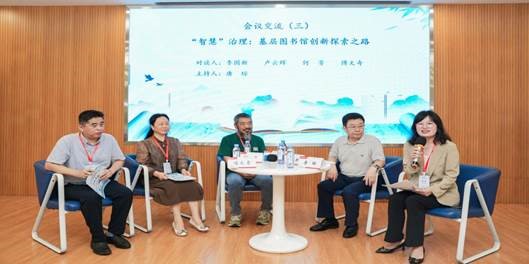
Chunyan Xu, Director of Yidu Library in Hubei Province, introduced the two major achievements of the library, namely "Farmers' Reading Festival" and "Farmers' Bookstore".
Hui Yan, CPC Secretary of the School of Information Resources Management, Renmin University of China, combined with academic literature, industry news and project experience related to digital intelligence empowerment in grass-roots libraries, put forward his own views on "why empowerment, who will empower it and to whom", empowerment fields and empowerment technologies.
Shijuan Li, Contracted Associate Professor at the Department of Information Management of Peking University, pointed out that basic theory, career development and user research are the "troika" of library development.
Wugang Jin, Professor at the Department of Information Management of East China Normal University, believed that the effect of digital intelligence empowerment in grass-roots libraries has a great relationship with financial support, and all parties concerned need to work together to meet the challenges.
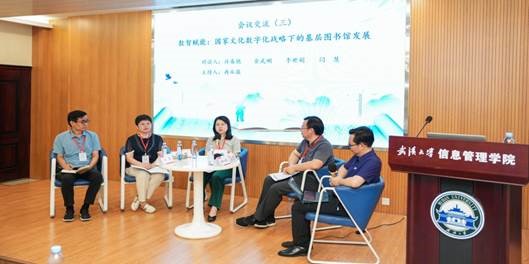
During the discussion, experts and scholars also put forward their own views on the reading promotion in poverty-stricken counties, the application of large language model, the cultivation of artificial intelligence literacy, the sustainable innovation of grassroots libraries, the bridging of the digital divide and the mismatch between supply and demand of library talents.